Wetlands and Wellbeing: Our Science
We believe wetlands have a unique role to play in supporting our physical and mental health. That’s why we’re researching the impact our ‘blue’ spaces have on our health and wellbeing.
Our research has one common goal; to learn more about the complex relationship between wetlands and wellbeing. We’re then using this evidence to maximise the benefits of wetland nature for as many people as possible and ensure key decision makers recognise and value them too.
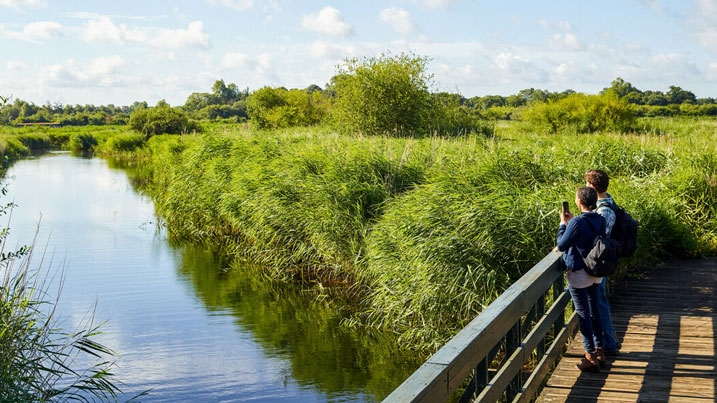
The challenge
We are facing a wellbeing crisis. Non-communicable diseases such as depression, anxiety, obesity, asthma and heart disease now account for 89% of deaths in the UK and are now our greatest concern. Economically they place a huge burden on our health and social care service.
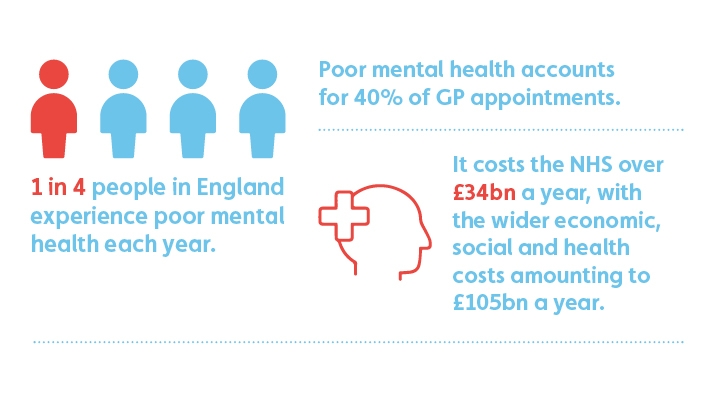
The COVID pandemic highlighted just how important spending time in nature is to our health and wellbeing, hastening calls for a better understanding of how these benefits might differ between different areas and communities, and how we can make the best use of these benefits to improve community health and society. To date much of the scientific research has focused on urban green spaces and coastal areas, with blue spaces often being overlooked. WWT is working to change this.
What we are doing
By partnering with leading UK universities, community groups and mental health charities we’re working to fill this knowledge gap and understand the relationship between human health and wetlands.
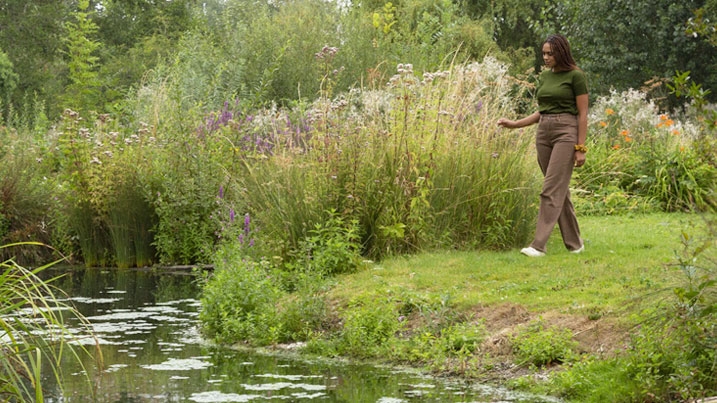
Building the evidence base
We have conducted pilot studies to test the application of new wearable technology to understand how wetland experiences impact our brains and bodies. Our research shows that just ten minutes spent in urban wetlands can be enough to improve a person’s mood.
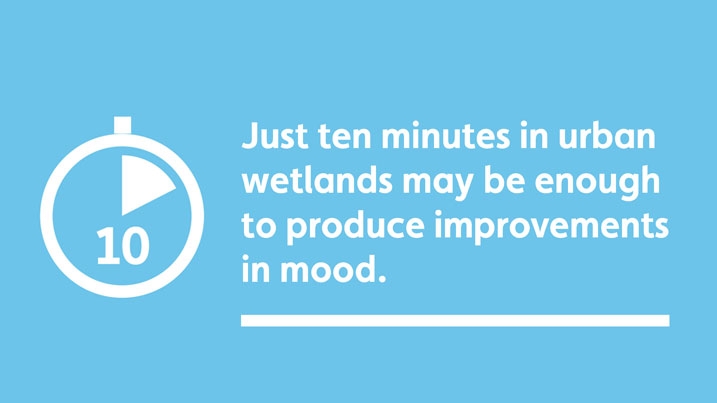
We have carried out research with visitors to our wetland centres to better understand the health benefits these visits bring. Our findings show perceived benefits include relaxation and mental restoration, and highlight how biodiversity and having good amenities are important qualities to consider when planning, managing and encouraging people to use natural environments for health benefits.
Our research into Nature Based Interventions (NBIs) based in wetlands, shows they are an effective therapy option for people living with anxiety and depression. The average wellbeing effect of the course on participants was valued at £4,848.
The Blue Prescribing Project
Our Blue Prescribing Project is a new innovative, nature-based form of social prescribing which enables health care professionals to refer people to non-clinical services in the community to improve their health and wellbeing. The project not only looks at individual benefits to people’s health, but also how these types of nature-based health programmes might be mainstreamed.
To support this mainstreaming, we are also providing evidence of the economic benefit of nature prescribing. Our research shows that every £1 spent on WWT Blue Prescribing and wider activities at WWT Steart yielded £9.30 of ‘social value’ for participants.
Every £1 spent on WWT Blue Prescribing and wider activities at WWT Steart yielded £9.30 of ‘social value’ for participants.
After we partnered with the Mental Health Foundation to devise and deliver a nature-based self-management programme at WWT London during 2021, we measured how effective the programme was and evaluated responses from participants.
Nature-based activities proved to be an effective starting point in connecting people, and participants also reported feeling better as a result of having experiences in common and sharing stories, socialising more with others, and improved awareness of nature and its benefits.
Overall, the group experienced meaningful positive change in their mental wellbeing, moving from ‘low’ wellbeing to a level close to the national average, while also enjoying significant increases in feeling worthwhile and happy, and some increase in life satisfaction
Dr Jonathan Reeves, Principal Research Officer (Health & Wellbeing), WWT
Read the summary of findings or the full report here.
And some participant case studies.
"It just really helps clear my mind and helps me reset. You can just look out and it is just water and reeds, plants and birds. Now I think of it as like taking medicine."
Blue Prescribing course participant
Ensuring wetlands help level up and reduce inequalities
We’re looking at how we can maximise the benefits wetlands can bring to individuals and society and in particular, how they can help level up inequalities in wellbeing across the UK.
Currently one in three people don’t have access to nature within a 15 minute walk. Lack of access is concentrated in more disadvantaged areas, with people in the poorest urban and ethnically diversified communities twice as likely as those in more affluent groups to live in neighbourhoods without good quality blue or green spaces.
We have published our Wetlands for Urban Wellbeing Route Map that outlines how creating and restoring wetlands could help tackle these inequalities.
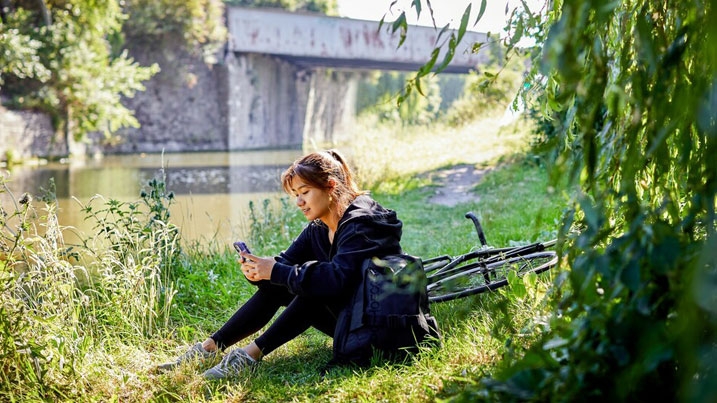
For communities in Bridgwater in Somerset, like many urban areas in the UK, access to green and blue spaces is poor. We're seeking to redress this through our Bridgwater Blue Heritage Project that's bringing more blue spaces into the heart of the town. These restored wetlands are improving the wellbeing of local people by creating more opportunities for nature-based activities like walking.
Key findings
The evidence base
- Ran trials of wearable technology to understand links between wetlands and human health.
- Publication of research into why people visit our wetland centres, and the health benefits visits bring.
- Production of Ramsar Wetland Disease Manual.
- Contribution to the Ramsar Convention’s Healthy Wetlands, Healthy People agenda.
- Valuing Nature placement 2017.
The Blue Prescribing project
- Delivery of Blue Prescription workshops at WWT London Wetland Centre and WWT Steart Marshes.
- WWT pilot study published in the International Journal of Environmental Research and Public Health that shows how wetlands can boost the wellbeing of people dealing with anxiety and depression.
- Publication of Social Return on Investment (SROI) evaluation of Blue Prescribing at WWT Steart Marshes.
- An evaluation of Blue Prescribing at WW London Wetland Centre - Mental Health Foundation
Ensuring wetlands help level up
- Publication of our Wetlands for Urban Wellbeing Route Map.